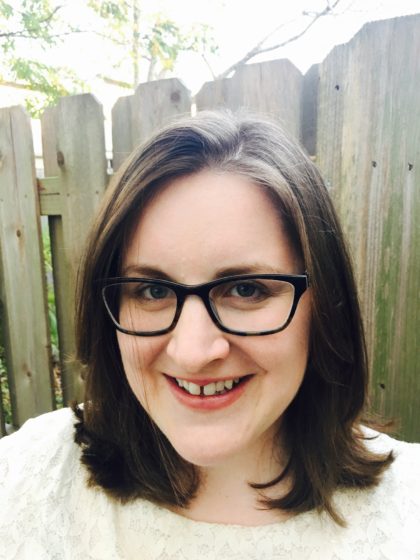
A student assistant was recently able to interview Dr. Findley-Van Nostrand amidst the chaos and confusion that is midterms about herself and her research interests, as well as her recent manuscript acceptance in the journal Psychology of Violence.
So, how do you like Roanoke so far? Is it very different from Florida?
It’s great! Definitely different from Tampa. Smaller city, slower pace, cooler weather…all good things for me.
Can you tell me about your academic background?
I did my undergraduate degree at the University of South Florida. I also remained there, for a variety of reasons, for my Ph.D. (and Masters along the way). Towards the end of my doctorate, I broadened my interests some and was involved in a couple of projects outside of the Psychology department that involved applying psychology to the problem of STEM (Science, Technology, Engineering, and Math) student persistence. These projects ended up leading to an offer to remain as a postdoctoral researcher after wrapping up my dissertation. So, after my postdoc, here I am!
What classes are you teaching right now and what types of courses will you be teaching in the future?
Right now I am teaching PSCY221- Developmental Psychology, and PSYC321- Child Development. In the near(ish) future I will teach these, as well as Intro to Psychology, Adolescent Development, and a Research Seminar in Developmental Psychology.
What are some of your past and current research experiences and interests?
My research interests are related but twofold. In my primary research, I am interested in peer relationships and social behaviors during adolescence and early adulthood. In this line, I have
focused on aggression among peers, underlying motivational factors, and the ways in which aggression is tied to social status among peers. I also have continuing research aimed at understanding the role of the self in aggression and prosociality, and my studies in these area are driven by both developmental and social psychology literatures and studies. In my second line of research, I’m also interested in understanding how social experiences, like felt belonging, as well as self-concepts and motivation may drive interest and persistence in STEM disciplines. Much of the research in this area is also related to academic persistence and achievement more broadly, but has some specific nuances related to the STEM context.
I recently heard that you have been approved to publish an article in a journal, can you tell me more about that?
Sure! The paper will be published in the journal Psychology of Violence, and includes two studies (one in early adolescence, and one in young adulthood) examining two forms of psychopathy, social goals, and forms of aggression. In previous research, we’ve demonstrated that social goals for status predict heightened aggression (especially relational aggression) over time in adolescents, and social goals for closeness and affiliation are related to lower levels of aggression. In a separate line of research, psychopathy and callous-unemotional traits are consistently tied to high aggression. In our study, we demonstrated differences in relationships between psychopathy and social goals based on form of psychopathy (one form entailing interpersonal manipulation was related to social goals, whereas the other form entailing behavioral impulsivity was not), and that social goals mediated the links between psychopathy and aggression in both age groups. So, within the context of psychopathy as a risk factor, targeting social goals may help in aggression-related interventions.
What are some random/cool facts about you?
First, my husband and I have an 1 ½ year old son, who keeps us busy and I’m forever in awe of. Second, I am a huge Formula 1 racing fan! We have a lot of awkward hours in our house where we will wake up to watch the European races live. It’s a much more complex sport than you might think, and the psychology of the drivers, their competitiveness, decision making, team dynamics, etc. is really fascinating.
Is there anything else that you’d like to mention?
Everyone here has been super welcoming. So thanks!
Congratulations Dr. FVN for your recent manuscript acceptance and thank you for taking time to answer our questions!
Get connected!
Instagram & Twitter: #PsychRC @RC_Psychology
Facebook: https://www.facebook.com/rcpsychology
Blog: https://psych.pages.roanoke.edu/
Linked In: https://www.linkedin.com/groups/RC-Psychology-8140491/about
Website: http://www.roanoke.edu/inside/a-z_index/psychology